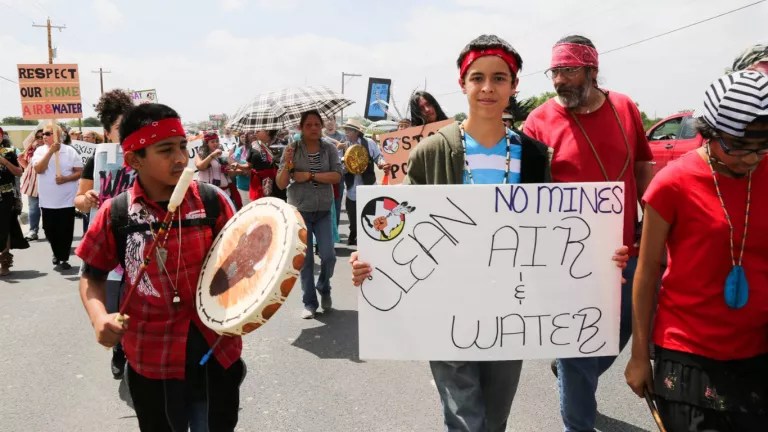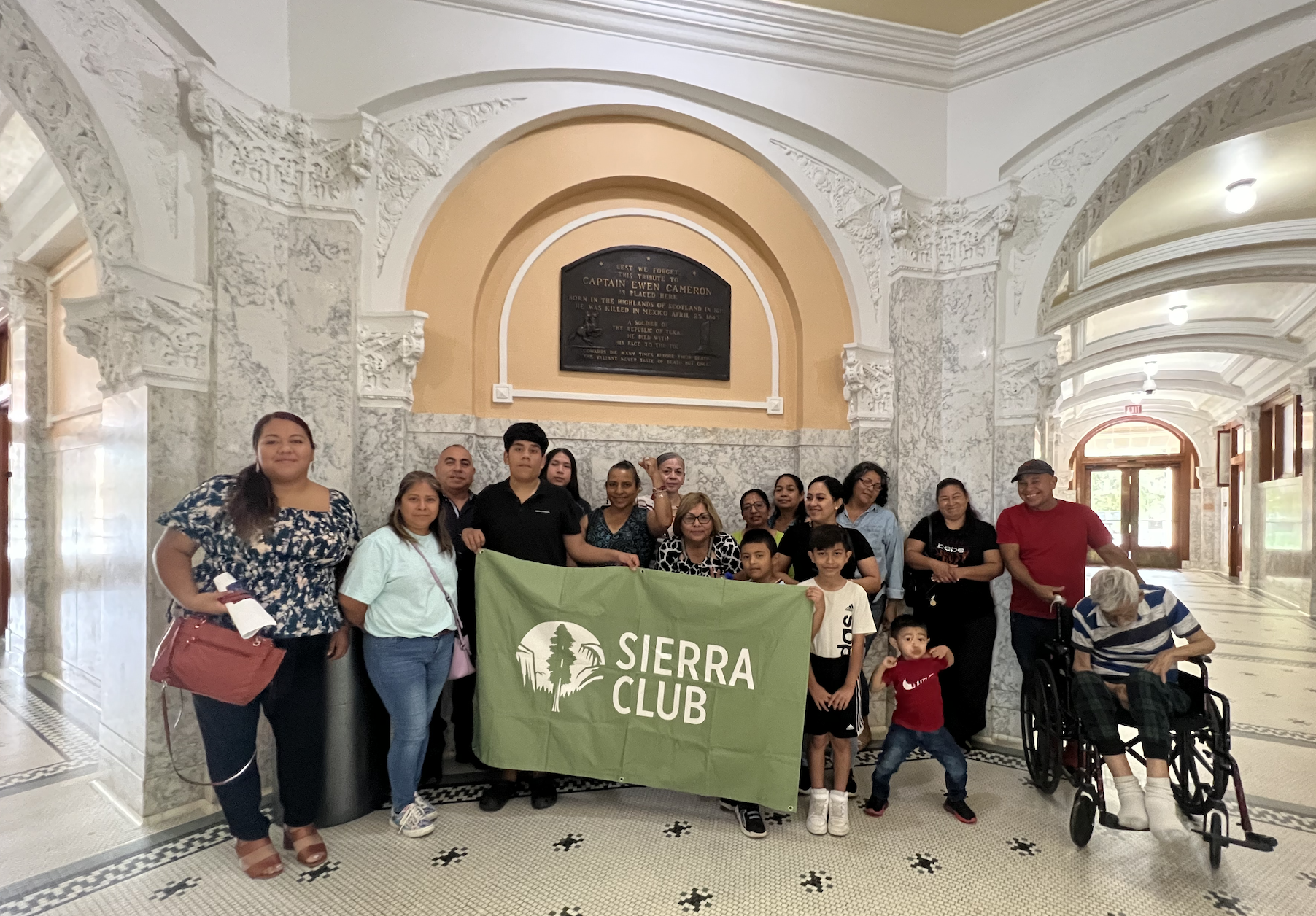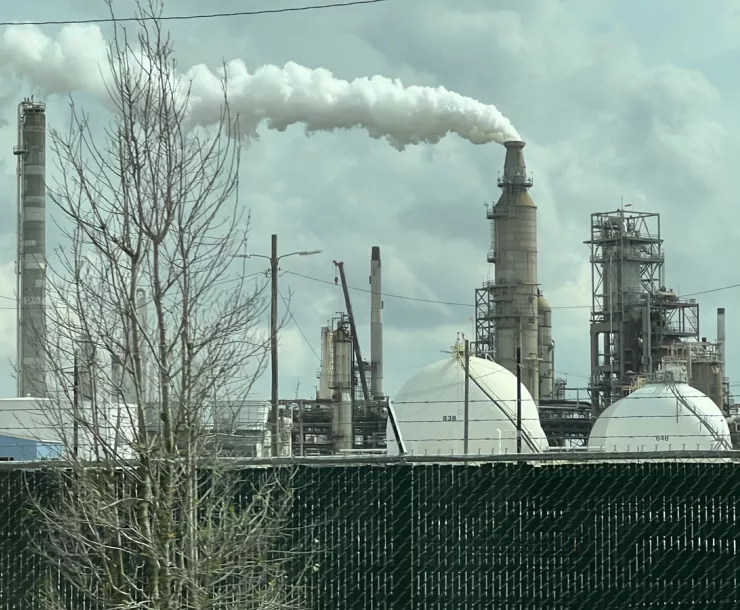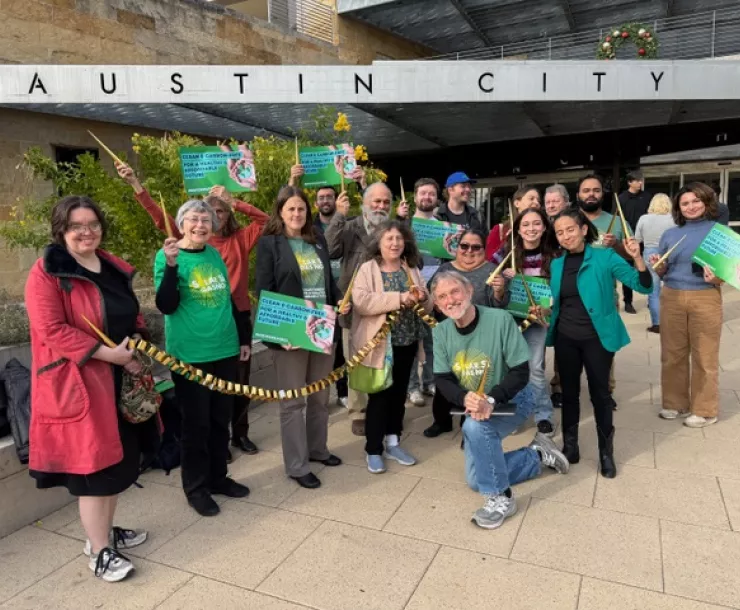
The 89th Texas Legislature is the next meeting of the legislative branch of the U.S. state of Texas, composed of the Texas Senate and the Texas House of Representatives. Its regular session is scheduled to meet from January 14, 2025, to June 2, 2025. The Sierra Club Lone Star Chapter's Legislative Agenda includes specific goals in key priority areas. Our legislative priorities align with our conservation priorities:
- Clean Air & Water
- Smart Energy Solutions
- Texas Land & Wildlife Legacy
- Water for People & the Environment
- Stable Climate
We will promote our legislative agenda through direct and grassroots legislative and administrative lobbying, education, community engagement, and outreach.
Key Legislative Focus Areas
From climate action to social justice, the Sierra Club Lone Star Chapter aims to be ambitious and impactful during the 89th Texas Legislature. We will fight for measures that will lead to a more resilient, equitable, and sustainable Texas. Here are some key legislative priorities we are looking forward to in 2025.

Clean, Reliable, Affordable Energy for All
The Lone Star Chapter supports the responsible growth of solar, wind, and battery storage projects across Texas. We oppose legislative or regulatory efforts aimed at imposing market changes, discriminatory fees, or permitting requirements that make it harder for renewable energy to thrive. Such barriers not only hinder economic opportunities but also slow Texas’s transition to a cleaner, more resilient energy system. Defending renewables ensures a stable grid, job growth, and sustainable energy solutions for future generations.
Air Quality Monitoring Initiatives
The Lone Star Chapter is advocating for enhanced air quality monitoring systems, particularly in vulnerable areas like the Gulf Coast and the Permian Basin. This expansion would focus on tracking key pollutants such as Hydrogen Sulfide, Methane, Ozone, and PM 2.5 using advanced, speciated monitors. Strengthening these efforts will provide more precise data, ensure timely public alerts, and support policy measures aimed at reducing harmful emissions. Improved monitoring also helps hold industries accountable for air pollution, ensuring a safer environment for communities impacted by petrochemical activities and fossil fuel extraction.
Modernize Our Electric Grid
We support advancing solutions to make our electric grid more resilient, reliable, and cleaner. This includes increasing the statewide goal for energy efficiency, creating a market-based demand reduction program for residential and small business, expanding local/onsite electric storage and renewable onsite generation, and updating our statewide building codes to the latest national standards, and ensure counties have the same powers as cities to adopt codes, require inspections, and enforce rules to save energy.
Opposing Fossil Fuel Subsidies
We oppose efforts to further subsidize fossil fuel plants through state-backed incentives or capacity market schemes. One of our goals is to increase grid resiliency measures at private and public utilities to help Texans survive weather extremes, including Backup Power Packages approved by voters in 2023 as a part of the Texas Energy Fund (TEF). The TEF was created by the Texas Legislature through Senate Bill 2627 and provides funding opportunities for electric generation projects through four programs.
Water Protection Standards and Solutions
The Lone Star Chapter stands behind establishing surface water quality standards for salinity that support aquatic life and protect the Texas coast from desalination plant discharge and petrochemical industrial pollution. We will continue to fight to prohibit the discharge of pre-production plastic pollution to protect waterways from visible and invisible plastic pollution.
The Big Water Bill
We support increased funding for the Texas Water Fund, the Economically Distressed Areas Program, environmental flow studies, the Flood Infrastructure Fund (including nature-based solutions), agricultural water conservation, and similar essential programs. We advocate for these initiatives to prioritize underserved communities with grants and technical assistance. We urge the inclusion of strong environmental protections and stand firmly against any measures that could threaten local ecosystems.
Bill Tracker
Curious about how far these bills are through the legislative process? Use this tool to follow the progress of specific bills throughout the session.



